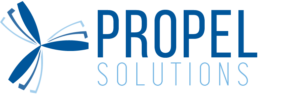The Challenge
The Regional Municipality of Wood Buffalo (The Municipality) is one of the fastest growing regions in Canada. In addition to realizing the benefits of business process improvement, the Municipality’s Insurance Services department required that their end-to-end processes be defined and documented to enhance knowledge transfer and to prepare for ongoing anticipated growth. They selected Propel Solutions to develop business processes and standard operating procedures across each of the department’s branches.
The Objectives
- As-Is Process Workshops: Our consultants worked with Insurance Services stakeholders to map and critique their current processes in order to uncover variances and opportunities for improvement.
- Comprehensive Gap Analysis: From interviews with stakeholders, group workshops and a review of best practices, we conducted a Gap Analysis to outline process gaps and suggest feasible alternatives. Actions were prioritized by stakeholders and classified into short-term, medium-term and long-term implementation timelines. We worked with the Municipality to incorporate these recommendations into their strategic plans.
- Future-State Process Maps: Processes were re-mapped to their future state to realize process improvement opportunities. Our consultants addressed gaps and eliminated non-value adding activities through future-state process design.
- Standard Operating Procedures: We developed standard operating procedures to support the processes moving forward. This documentation outlined all steps involved in navigating through the business processes, plus stakeholder roles and responsibilities to ensure compliance.
The Results
Our work resulted in the formalization of operational best practices including the development of 8 future state processes that were previously undefined. In addition, 26 standard operating procedures were documented incorporating recommendations to enhance customer service, standardize processing and improve controls. A Roadmap expanded on key activities and suggested timeframes to support the ongoing realization of process improvements within Insurance Services.

